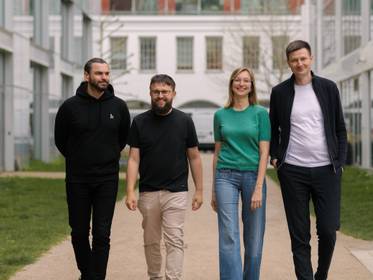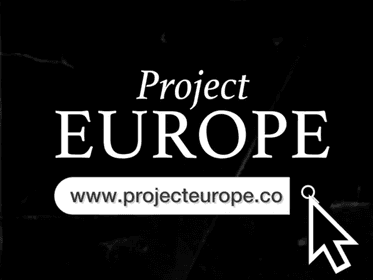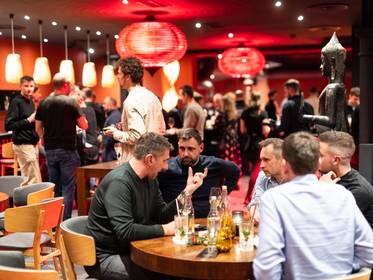Why we invested in the second-hand bookshop Knihobot

Michala Gregorová
Books bring good karma, especially when they come to you second-hand. Read about our new investment into the circular economy and why we think you might like the idea of Knihobot.

We’ve been watching the growing popularity of second-hand markets for some time now. Michal Jirák wrote about it last February in his Tech Trend Highlights of 2020 article, and later we recorded a podcast in which we focussed on whether second-hand markets are experiencing a revival. We think they are. We also think this trend is worthy of our attention so it not only stays, but also grows.
In last year’s podcast we focussed mostly on fashion, but the principles of circular economy can be applied to many other areas, including books.
Here are some numbers to ponder: In Czechia alone there are some 30 million books sold each year. And books that were read amount to about 800,000 per year. That’s a lot of books that could be put to good use with a little bit of help -- millions of books in fact, representing quite a bit of saved paper.
Why is it hard for people to pass their books on? Selling unwanted books is not easy. If you want to sell your used books, you have essentially two options. Either you convince your local second-hand bookseller to buy them (usually for just a few crowns, as the bookseller has no certainty about whether the books will sell and for how much), or you can advertise them on an online second-hand marketplace, where you have to do the legwork: from taking photos of the books to negotiating with buyers and then dealing with shipping.
Or you can try Knihobot. (In the photo, from left, founders Pavel Pekař, Dominik Gazdoš and David Gazdoš.) Last year Knihobot sold more than 110,000 books, and their plans for 2021 and beyond are more ambitious still: for example, paying out 100 million Czech crowns in 2022 for books sold by Knihobot. To get on board, all you need to do is go through your library and find books you won’t be reading anymore. If you bring the books directly to a Knihobot outlet, you won’t even have to worry about packing them.
What was it about Knihobot that grabbed our attention? The fact that they were able to build a company with nothing more than their hard work, that they are making money, and that they haven’t lost their sense of humour in the process.
What’s their secret? Knihobot never had any money to speak of, so they’ve had to make do without. They are a typical garage startup, with tables made from old doors (where else have we seen these?) and a warehouse full of banana boxes.
Let’s summarise: 1) An ambitious team that knows how to get things done 2) in an area that is growing in popularity and is very much needed, in the spirit of the motto of ‘less is more’ and ‘there’s no planet B’. As Knihobot’s Dominik Gazdoš aptly says: "The less greenwashing and more rationality there is in circular projects, the more likely they are to succeed over the long term.”
We’re honoured that Knihobot has brought us along on their journey, and we hope that our experience from e-commerce will help them fulfil the classic investment tenet of ‘more and faster’. Our plans are ambitious. After all, we want to live in a world where when you finish a book, you simply look up the nearest Knihobod outlet on your mobile, take the book there, and then wait for money to land in your account. How good would that feel?
P. S. After you finish reading this story, be sure to comb through your bookshelves.
We can guarantee there’ll be books there you won’t be reading anymore. So let someone else enjoy them, and you enjoy the surprise of how much money you’ll receive from Knihobot. You can bring books without prior arrangement to their Vysočany or Holešovice outlets, or you can send them to Knihobot, free of charge, via courier or Zásilkovna (read here how it works).
Share
Of further interest
Grason has a new CEO and is now 100% owned by Miton
The startup Grason, founded in 2018 by Karel Mařík and Jarmila Kowolowska as a platform for flexible staffing in the restaurant industry, is entering a new phase. Its new owner is Miton, which has been an investor in Grason since 2019, and its new CEO is Anna Pánková. Her task is to lead Grason in a new direction so that it serves restaurateurs as a comprehensive tool for managing personnel in their businesses.
Project Europe
Is it possible to build great projects from Europe? Absolutely. What does it take to make that happen? The newly launched Project Europe is a bold attempt that we’re proud to support. It offers €200,000 to aspiring founders under the age of 25—as long as they start their company in Europe.
What’s New: Fall/Winter 2024
As Miton continues to expand thematically, these regular summaries are becoming more and more diverse. We have something from crypto, a lot from AI, new podcast episodes, news in gastrotech, and re-commerce. What interests you the most?


